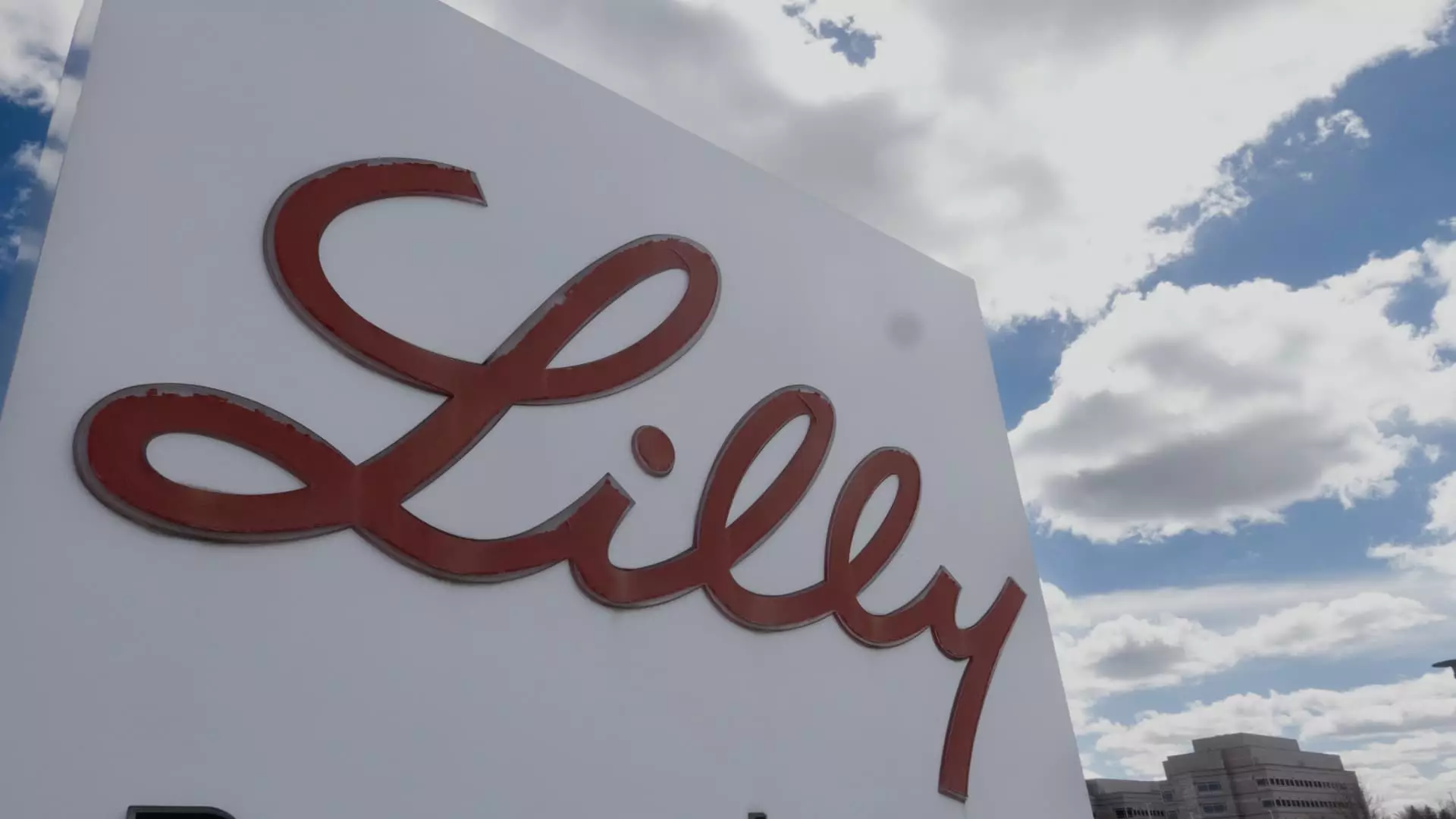Eli Lilly has recently announced a monumental investment plan totaling at least $27 billion to establish four new manufacturing sites across the United States. This investment is not simply a response to present market demands but a strategic move that aligns with shifting political landscapes and public sentiment around domestic production. Recognizing the rising demand for its successful weight loss and diabetes medications, the company is not only looking to bolster current production but also to innovate by exploring new drug therapies for various health conditions.
The timing of this announcement could not be more significant as it occurs in a political climate that heavily emphasizes reshoring manufacturing. Companies across various sectors, including pharmaceuticals, are vying to build goodwill with governmental leaders, notably during an era characterized by rising concerns about dependence on international supply chains. By publicly committing to domestic manufacturing growth, Eli Lilly aligns itself with prevailing political narratives, potentially positioning itself favorably in upcoming policy discussions and negotiations.
Eli Lilly’s announcement was made at a Washington, D.C. event, emphasizing the importance of political context in corporate strategy. The company’s investment is part of a broader trend among U.S. pharmaceutical companies seeking to enhance domestic production capacities, particularly in light of recent supply chain disruptions. As such, Eli Lilly’s announcement marks not just an investment in facilities but a calculated step towards fostering a vibrant and resilient U.S. manufacturing sector.
The decision to invest $27 billion will undoubtedly stimulate local economies, creating more than 3,000 high-skilled jobs in areas such as engineering and scientific research. Additionally, the construction of these plants will generate approximately 10,000 construction jobs. This job creation is not merely a statistical footnote; it directly contributes to reviving communities economically, especially in an era where manufacturing jobs are increasingly sought after as stable, long-term employment options.
Eli Lilly’s historical commitment to U.S. manufacturing has led to total investments exceeding $50 billion over recent years, which serves to bolster American manufacturing capabilities. This long-term commitment demonstrates a strategic vision that prioritizes both job creation and the accessibility of cutting-edge medical treatments.
While Eli Lilly’s recent investment focuses primarily on its successful obesity drug Zepbound and diabetes treatment Mounjaro, the company is keenly aware of the necessity to diversify its drug offerings. The announcement underscores Eli Lilly’s ambitions to venture beyond current successes and into untapped areas such as oncology, cardiometabolic health, and neurodegenerative diseases like Alzheimer’s.
CEO David Ricks highlighted that the company is driven by optimism regarding its expansive pipeline of therapeutic possibilities. Several analysts have projected the global market for obesity drugs could soar to over $150 billion annually by the early 2030s. Thus, Eli Lilly is strategically positioning itself to not only maintain its market share but also to capitalize on potential growth areas, all while ensuring that production facilities allow for a steady supply of FDA-approved medications.
The influx of investments is particularly timely as Eli Lilly seeks to address previous supply shortages of its blockbuster drugs. In the past, shortages have driven patients to dangerous alternatives such as compounded medications, highlighting a market gap that needs to be filled with high-quality, regulated options. The FDA has since noted a resolution to the shortage of tirzepatide, which is crucial for ensuring that Eli Lilly can meet patient needs reliably without falling prey to the pitfalls of unregulated substitutes.
By expanding production capacity and investing in domestic manufacturing, Eli Lilly is actively working to restore trust in its brand, aligning with patient needs and regulatory guidelines.
Eli Lilly’s substantial investment announcement is a clear indication of where the company sees its future: in reinforced domestic manufacturing and an expansive pipeline of new therapeutics. The dual focus on job creation and addressing essential drug shortages positions the company well in the evolving pharmaceutical landscape. Such a comprehensive approach not only strengthens the company’s market position but also enhances its ability to respond to the evolving healthcare needs, all while keeping patient safety and quality at the forefront. As the pharmaceutical industry undergoes considerable changes, Eli Lilly’s forward-looking strategy could serve as a model for other companies aiming to innovate while supporting economic growth within the United States.

